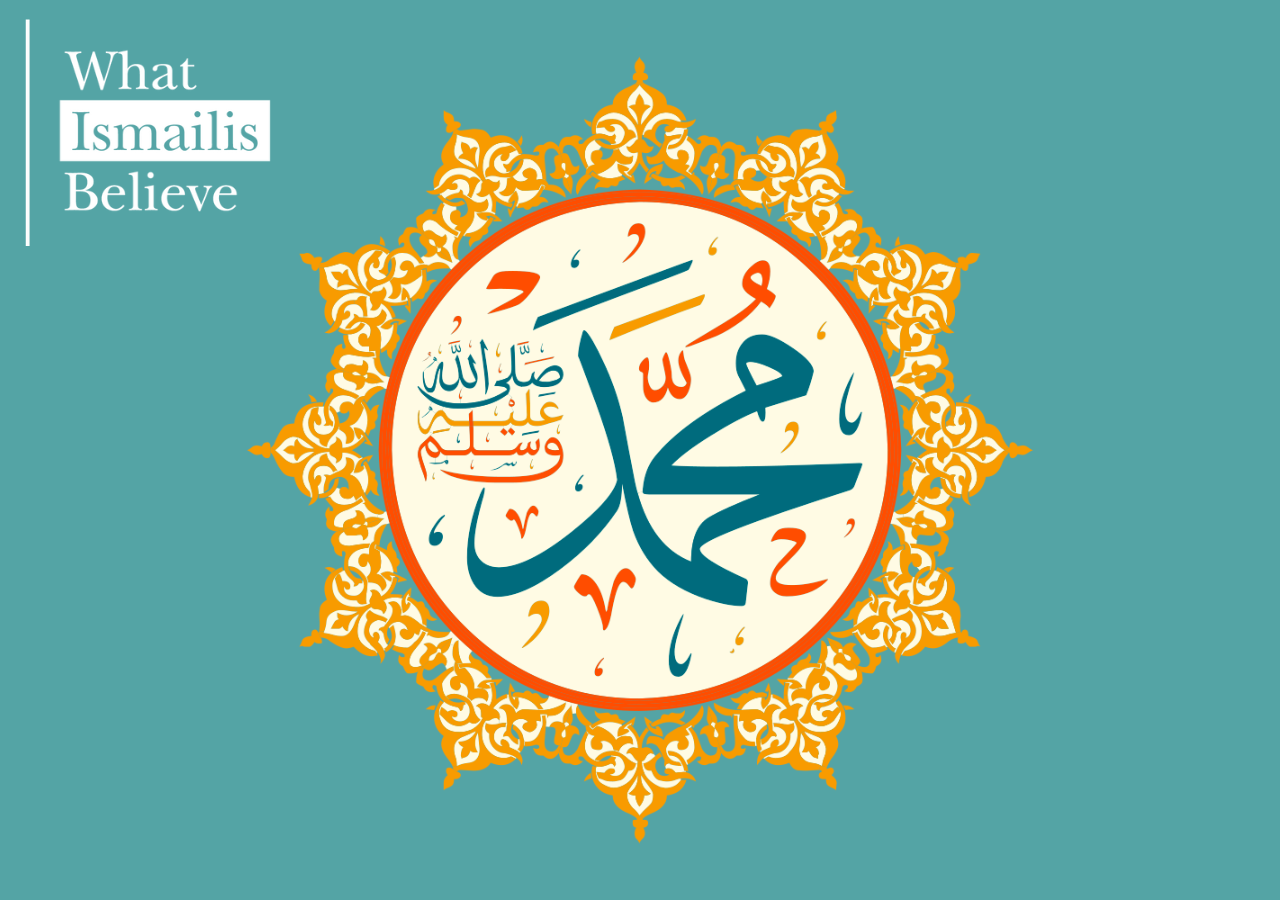In their daily prayers, all Muslims recite salawat by seeking blessings on Prophet Muhammad. The Arabic word salawat is the plural of salat, meaning “prayer.” Based on guidance in the Holy Qur’an, various forms of salawat have evolved for Muslims to seek Divine blessings on the Prophet. Recitation of salawat is also considered a source of grace, blessings, and intercession for believers. Based on sayings attributed to the Prophet, it is common for many Muslims, including Shia and Sunnis, to recite forms of salawat that also include blessings on the Prophet’s family.
Reciting salawat for the Prophet and his family
The Holy Qur’an calls on believers to seek blessings on the Prophet in Surah 33, Ayah 56:
“Indeed, Allah and His angels bless the Prophet! O you who believe, invoke blessings on him and greet him with the full greeting of peace.”
When this verse was revealed, one hadith records that the Prophet’s companions asked him how they should recite the salawat. The Prophet is said to have replied:
“Say: ‘O Allah, send Your blessings on Muhammad and the family of Muhammad in the same way as You sent Your blessings on Ibrahim (Abraham) and the family of Ibrahim’ (Allahumma salli ala Muhammad wa-aali Muhammad kama sallayta ala Ibrahim wa-aali Ibrahim).”
Therefore, one common form of salawat is: Allahumma salli ala Muhammad wa-aali Muhammad, meaning “O Allah, send Your blessings on Muhammad and his family.”
Muslims recite various forms of salawat, which is also known as tasliya or durud-i sharif. After mentioning the Prophet’s name, it is common for Muslims to invoke blessings upon him, saying: “salla Allahu alayhi wa-sallam,” meaning “may the peace and blessings of Allah be upon him.”
To the above, Shia Muslims and some Sunnis add reference to the Prophet’s family by saying “salla Allahu alayhi wa-aalihi wa-sallam,” meaning “may the peace and blessings of Allah be upon him and his family.”
Salawat as a prayer for intercession
The remembrance of Prophet Muhammad is an important part of Muslim prayers and devotional life and is believed to be an important way of receiving baraka, or blessings. In a hadith, the Prophet is said to have told believers, “He who calls God’s mercy upon me once, God sends His mercy upon him ten times.”
Muslims from most communities of interpretation regard Prophet Muhammad as an intercessor. Intercession means to plead or intervene on behalf of another. Believers ask those who are considered close to God to intercede with the Lord on their behalf.
In her book And Muhammad is His Messenger, Annemarie Schimmel explains that salawat is considered the most powerful prayer for Muslims to seek God’s intercession. She writes, “Though thousands of prayers and poems speak of the Muslims’ hope of Muhammad’s intercession for themselves and their families, there is one means to this end that is much more powerful than anything else: to implore God to bless Muhammad and his family.”
She suggests that most Muslims would probably agree with the Sufi mystic and poet, Rumi, that salawat is a means to draw spiritually closer to the Prophet, thereby seeking his intercession with God.
Muslim artistic expressions of salawat
Various forms of salawat appear in Muslim artistic expressions throughout history and across cultures and languages. Whenever the Prophet’s name is written in calligraphy, it is common to add a beautifully written salawat alongside it. Many Muslim poets and musicians have also expressed their love for the Prophet through compositions of salawat.
One of the most venerated poems in praise of Prophet Muhammad is Qasida al-Burda, composed by a 13th century Egyptian Sufi mystic, al-Busiri. It was written in Arabic but has been translated into almost every language of the Muslim world. The qasida contains a frequent refrain: “mawlaya salli wa sallim da’iman abadan, ‘ala habibika khayri’l-khalqi kullihim,” which translates as, “O my Lord, bless and grant peace always and forever, upon Your beloved one, the best of all Creation.”
Today, many globally recognised Muslim music artists have performed songs containing salawat. These include Sami Yusuf’s “Supplication,” Maher Zain’s “Ya Nabi Salam Alayka,” Asim Azhar’s “Durood O' Salam,” and a rendition of “Qasida Burda Sharif” by Sanam Marvi with Fareed Ayaz and Abu Muhammad.
Ismaili artists have also composed songs that feature the salawat. These include popular songs such as “Durood O Salam” composed by Kamal Taj and “Allahuma Salli Aala” composed by Khairunissa and Fez Meghani. There are various renditions of songs containing the salawat released by The Ismaili Sounds.
Salawat in Ismaili devotional life
Many Muslims, including Shia and Sunnis, also believe in the intercession of members of the Prophet’s family, including the Shia Imams. Shia Ismailis believe that reciting salawat brings the believer closer not only to the Prophet, but to the hereditary Imam-of-the-Time from the Prophet’s family. The Imams are considered the inheritors of the Prophet’s authority, and are thus a source of grace, blessings, and intercession.
Many formal and informal Ismaili prayers and rituals around the world include various forms of salawat.
Ismailis recite salawat in the presence of the Imam-of-the-Time and when reading the Imam’s farmans, or guidance to the community. Salawat is also invoked to express thanks, when seeking support in times of difficulty, during rites of passage such as funerals, and in poetic and musical expressions.
Over a thousand years ago, Imam al-Mu‘izz, the 14th Ismaili Imam, expressed similar sentiments in a public Eid sermon made in 953 CE, saying: “May God bless Muhammad, lord of the messengers in former times and later. Remember God, the Mighty, in your invocation; seek His protection both for me and for you. Praise be to God and may His blessings and peace be on our lord Muhammad and his family in its entirety.”
Source: https://the.ismaili/global/news/features/why-do-ismailis-recite-salawat-...







